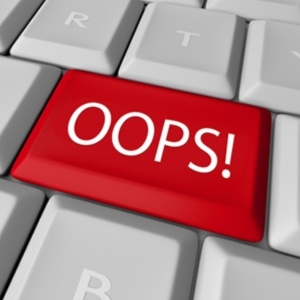 Social media gaffes by corporations and public agencies are becoming legend, just another apparently unavoidable part of the digital, live-streaming, insta-everything world we live in.
Social media gaffes by corporations and public agencies are becoming legend, just another apparently unavoidable part of the digital, live-streaming, insta-everything world we live in.
Social media engagement has turned out to be a double-edged sword, with one side of the blade being an equal playing field, with the opportunity to reach millions in a way that’s never been so possible — and so affordable (even free) — before.
Companies and individuals have an unprecedented opportunity to connect, build their brands, and enhance their reputations through use of social media like LinkedIn, Twitter, Facebook, Google+, Pinterest and more … or not.
Because the other side of the social media blade is the possibility for massive blunders — lapses in good judgment or etiquette that go viral — bringing enormous publicity and humiliation of the most unwanted kind. Consider the recent efforts of the NYPD to use Twitter to bolster its image and build community ties, as reported by ABC News:
“A feel-good Twitter request by the New York Police Department asking for pictures of people posing with officers quickly turned ugly when hundreds instead posted shots of baton-wielding cops battling protesters and taking down suspects.”
Read about more major social media blunders here.
For individuals, social media can prove equally tricky … A co-worker’s husband, let’s call him Harold, narrowly avoided disaster-by-social media. While reading an article in his LinkedIn stream about horrible bosses, he accidentally hit the “like” button. Yes, it happens more than you’d think.
One so-called minor mistaken click and you can cause major problems! Since his boss was also in his LinkedIn network, he saw this near-fatal like (near fatal to his job, that is!).
The next day his boss remarked, “I assume you meant another boss when you liked that article yesterday about horrible bosses on LinkedIn.”
Eek! Harold set his boss straight right away – but a simple mis-click almost caused conflict. And what if he had meant to click it? Who knows who else he might have offended? What if his boss had not asked him about it, but silently taken it to mean Harold thought he was a horrible boss? Imagine the potential repercussions …
A key point to remember: Everyone in your network can see what you post and like. And, depending on the network, so can many, many others.
Social media is the antithesis of private. It’s as public as it gets! Be careful. Be strategic. Err on the side of discretion when posting and liking posts/articles.
Remember, if you would only voice an opinion in the privacy of your own home, do not voice it anywhere online.
If you wouldn’t say it or do it in the boardroom, or during a job interview, or in conversation with your manager, or to a valued client, whatever you do, DON’T say it on social media!
It’s been said that all publicity is good publicity, but I beg to disagree. I expect these types of social media gaffes, faux pas and blunders to continue unabated. But with a little care and common sense, you don’t have to partake — except as an amused bystander, of course.
For more information on social media etiquette, let’s revisit some of our older blogs…
• 6 Rules to Conduct Yourself with Professionalism On Social Media Sites
• A Social Media Cautionary Tale — Reminder of Online Communication Etiquette
• Business Etiquette Online: 6 Tips For Successful Social Media Networking
